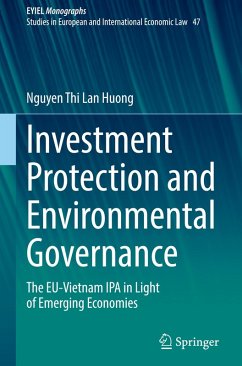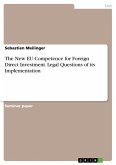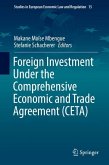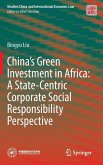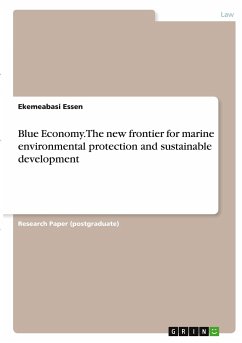This book explores key innovations in the EU-Vietnam Investment Protection Agreement that shape Vietnam s ability to regulate for environmental protection an essential pillar of sustainable development. It places this regulatory power within Vietnam s broader historical and developmental context, offering analysis relevant to emerging economies.
Rather than assessing all levels of investment protection, the book focuses on specific provisions that support a host state s ability to adopt environmental and sustainable development measures. It examines how these clauses function in practice and the challenges they present, especially for developing countries.
Existing literature often addresses investment protection in abstract or general terms. This book takes a more grounded approach, exploring how broad principles interact with Vietnam s legal capacity, policy needs, and developmental constraints. It argues that divergence from generalised assumptions is not a contradiction, but a reflection of differentiated conditions, including environmental urgency, institutional capacity, and the risk of regulatory chill, where states may hesitate to act for fear of investor claims.
The book offers practical insights for negotiators, policymakers, and legal practitioners involved in foreign investment governance, especially in emerging economies. It also serves as a valuable reference for scholars and stakeholders - particularly in the EU - seeking to understand the regulatory priorities and limitations of their partners.
Rather than assessing all levels of investment protection, the book focuses on specific provisions that support a host state s ability to adopt environmental and sustainable development measures. It examines how these clauses function in practice and the challenges they present, especially for developing countries.
Existing literature often addresses investment protection in abstract or general terms. This book takes a more grounded approach, exploring how broad principles interact with Vietnam s legal capacity, policy needs, and developmental constraints. It argues that divergence from generalised assumptions is not a contradiction, but a reflection of differentiated conditions, including environmental urgency, institutional capacity, and the risk of regulatory chill, where states may hesitate to act for fear of investor claims.
The book offers practical insights for negotiators, policymakers, and legal practitioners involved in foreign investment governance, especially in emerging economies. It also serves as a valuable reference for scholars and stakeholders - particularly in the EU - seeking to understand the regulatory priorities and limitations of their partners.

